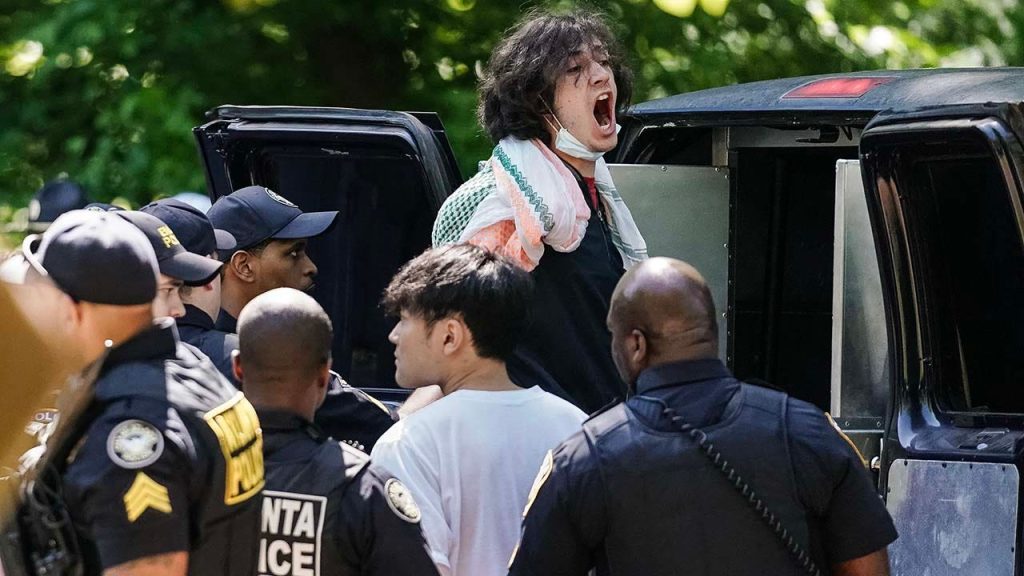The undergraduate student body at Emory University in Atlanta passed a no confidence vote against the school’s president in response to anti-Israel protests that resulted in over two dozen arrests. The Emory Student Government Association facilitated the referendum, with 3,401 out of 8,102 undergraduate students participating. Of those who voted, 73% were in favor of the motion, 25% voted against it, and 2% abstained. However, the University spokesperson noted that only 31% of the total undergraduate student body voted in favor of the motion, indicating a wide range of perspectives within the community that were not reflected in the referendum.
Following the student vote, the Faculty Senate for Emory College of Arts and Sciences also passed a “Motion of No Confidence and Demand for Redress” against Emory University President Gregory Fenves, with a 358-119 majority. The motion stemmed from the arrests of 28 individuals during an anti-Israel protest on April 25, which the Senate deemed “unprecedented.” The Faculty Senate condemned university officials for involving police, alleging that this led to violence and the use of force. President Fenves defended his decision to have the encampment removed, citing potential disruptions to classes, exams, and Commencement ceremonies. In late April, Emory University police arrested a convicted felon from North Carolina who had crossed state lines to participate in anti-Israel demonstrations on campus. The individual, Derek Zika, was found carrying knives and pepper spray at the time of his arrest.
The situation at Emory University has sparked debate and led to divisions within the community, with differing perspectives on the actions taken by university officials and the handling of the anti-Israel protests. While the no confidence vote and Faculty Senate motion highlight significant discontent with President Fenves, the low overall voter turnout indicates a lack of consensus among the undergraduate student body. The University spokesperson emphasized the importance of considering a wide range of viewpoints that are not captured in the motion passed by the Student Government Association and Faculty Senate. The involvement of outside individuals, like the convicted felon arrested during the protests, has added complexity to the situation and raised concerns about campus security.
The protests and subsequent actions taken by university officials have drawn attention from outside entities, including the Biden administration’s Department of Education, which is investigating Emory University for alleged anti-Muslim discrimination. This external scrutiny adds another layer of complexity to an already contentious situation on campus. The arrests during the anti-Israel demonstrations have raised questions about freedom of speech, campus safety, and the appropriate response to protest activities. President Fenves’ decision to remove the encampment and the use of police force in handling the protests have been met with both support and criticism within the Emory University community. Moving forward, the campus will need to navigate these challenges while addressing the concerns raised by different stakeholders.
Overall, the events at Emory University underscore the tensions and complexities inherent in managing campus protests, balancing academic freedom with security concerns, and addressing student and faculty dissent. The no confidence vote, Faculty Senate motion, and ongoing investigations serve as indicators of broader issues facing the university community. Finding a path forward that respects diverse perspectives, upholds academic principles, and ensures the safety of all individuals on campus will be critical in resolving the current situation and fostering a constructive campus environment. As the university continues to address these challenges, open dialogue, transparency, and a commitment to inclusive decision-making will be essential in building trust and unity within the Emory University community.


